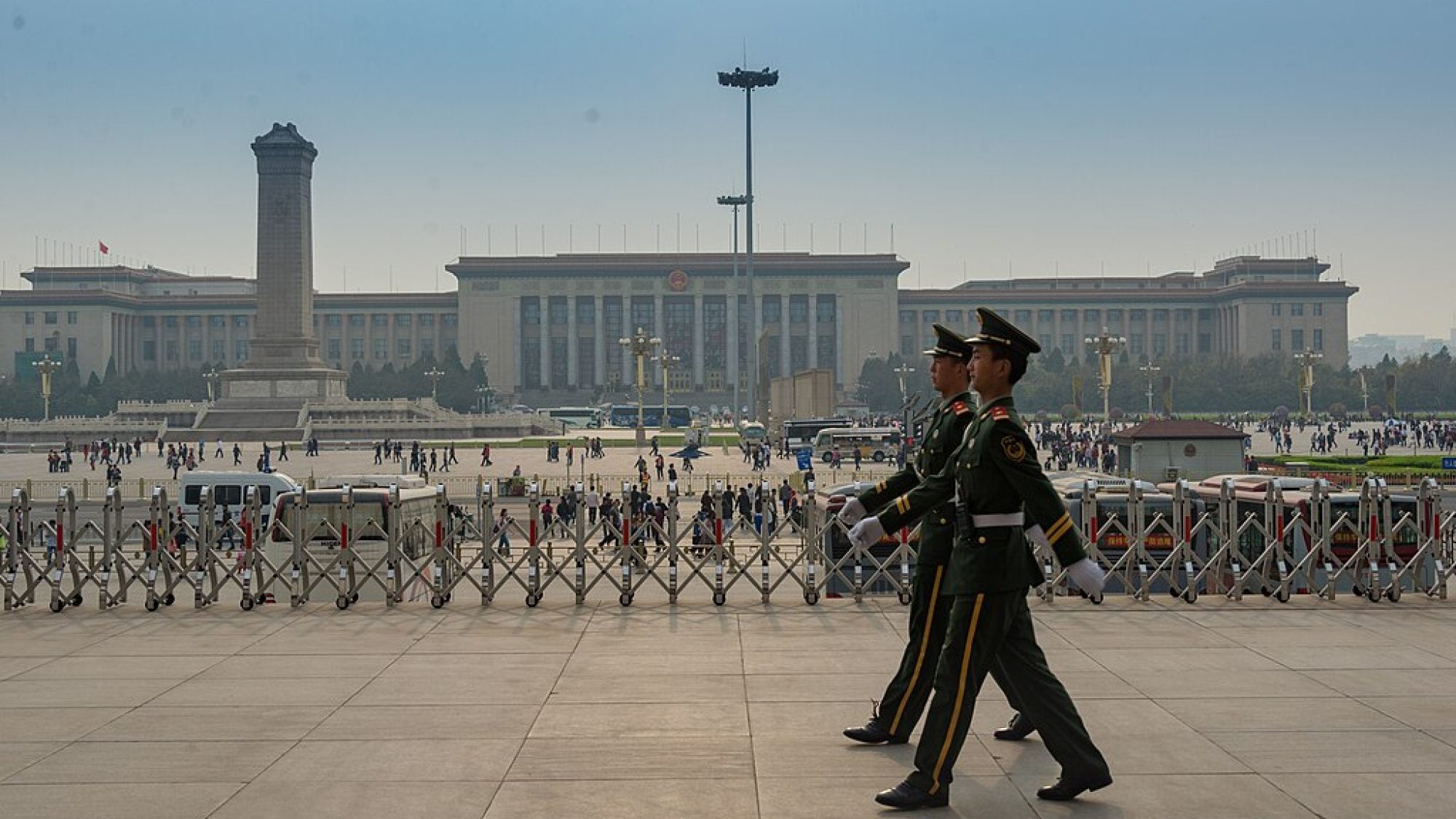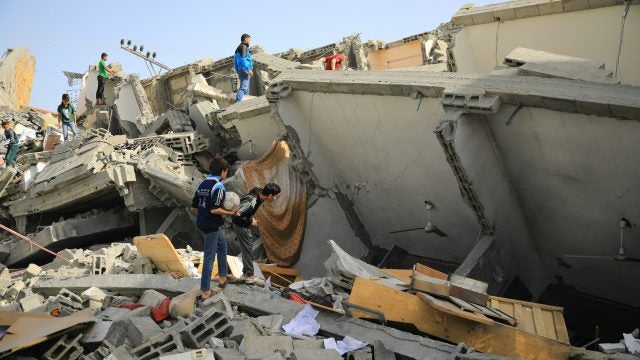
Title: The China Watcher’s Guide to Beijing Bureaucratese
“Today is June 4” may seem like an innocuous phrase, but it is not so for the Chinese government. As the New York Times has reported, this is the automatic response that Sina Weibo, China’s popular Twitter-like microblogging site, gives curious users who attempt to discover what transpired on Tiananmen Square twenty-four years ago: “According to relevant laws, statutes and policies, [results for ‘Today is June 4’] cannot be shown.” The message of the Communist Party of China (CPC) is simple: the Tiananmen Massacre never happened. Like the mandarins of yore, modern CPC officials have developed a peculiar language, a particular set of uncodified phrases that mean something other than their expressed denotation. Fluency in this obscure tongue is a must for any China watcher. The Diversified Employment of China’s Armed Forces, the latest installment of China’s now-famous military manifestos, offers the perfect opportunity to delve into the Beijing dialect of bureaucratese. This article illustrates China’s version of “political correctness” by translating the following excerpts from the military manifesto into English.
“In accordance with relevant laws and regulations, the armed forces of China participate in social order maintenance, and guard and fight against terrorist activities. The PAPF is the state’s backbone and shock force in handling public emergencies and maintaining social stability.”
“Social stability” is a Chinese government code phrase for the suppression of dissent, much in the same way that “subversion of state power” is frequently a bogus criminal charge used to silence political activists. In fact, “social stability” is a common go-to expression used to legitimize any kind of government crackdown, including those against disgruntled Uyghurs who resent Han rule. This blanket term often blurs the line between repression and legitimate law enforcement.
“As stipulated by law, [China’s armed forces] perform their duties of maintaining national security and stability, steadfastly subduing subversive and sabotage attempts by hostile forces, cracking down on violent and terrorist activities, and accomplishing security-provision and guarding tasks.”
What the CPC calls “terrorism” is in fact part of a broader concept in the Communist Party’s lexicon known as the Three Evils. This unholy trinity consists of terrorism, separatism, and extremism, and the Party is deathly allergic to it. In the eyes of the Chinese government, Tibetan self-immolations fall under the “separatism” rubric, which is on the same level as terrorism. If Beijing had its way, international definitions of terrorism would lump the Dalai Lama and Osama bin Laden together.
“The Constitution and relevant laws entrust China’s armed forces with the important tasks of safeguarding the peaceful labor of the Chinese people, taking part in national development and serving the people wholeheartedly.”
Here, “people” means “party,” in other words, the Communist Party. As opposed to most militaries around the world, the People’s Liberation Army (PLA) is not a national military. Since its founding on 1 August 1927, the PLA has been and continues to be the military of the Communist Party of China, not of the People’s Republic of China. The PLA’s allegiance was reasserted in 2004 when Hu Jintao proclaimed that “providing an important guarantee of strength for the party to consolidate its ruling position” constituted part of the military’s new historic missions. Recent speculation that the PLA would be nationalized has been similarly dismissed.
“We will not attack unless we are attacked; but we will surely counterattack if attacked.”
Perhaps not, but what about salami slicing? Robert Haddick posited on Foreign Policy last year the possibility that China’s strategy in the South China Sea could consist of a “slow accumulation of small actions, none of which is a casus belli, but which add up over time to a major strategic change.” Actions like the naval standoff between China and the Philippines in April 2012 and the establishment of Sansha City on Woody Island support his hypothesis.
“[China’s armed forces] uphold the Five Principles of Peaceful Coexistence, conduct all-round military exchanges with other countries, and develop cooperative military relations that are non-aligned, non-confrontational and not directed against any third party.”
In short, the Principles explicitly renounce interventionism and aggression in favor of peace and respect for the territorial integrity of other countries. Although it can be argued that China has a right to behave provocatively in the Near Seas and Ladakh (China does, after all, consider them Chinese sovereign territory), China’s ever-increasing territorial spats with its neighbors do seem to conflict with the Principles of peace and respect for foreign sovereignty.
“China’s armed forces have always been a staunch force upholding world peace and regional stability, and will continue to increase cooperation and mutual trust with the armed forces of other countries.”
While it is true that the PLA has improved its military diplomacy in recent years, “strategic distrust” continues to be a major concern in Sino-American relations. Not to mention Chinese incursions into disputed waters and border areas are achieving the exact opposite of regional stability and world peace. It would appear that the Chinese either do not walk the walk or have some serious Party-military communication issues.
Image Credit: xiquinhosilva, CC BY 2.0 <https://creativecommons.org/licenses/by/2.0>, via Wikimedia Commons
This is an archived article. While every effort is made to conserve hyperlinks and information, GJIA’s archived content sources online content between 2011 – 2019 which may no longer be accessible or correct.
More News

From the 1960s to the 1990s, the Danish government implemented the “Spiral Campaign,” a family planning policy that fitted four thousand and five hundred Inuit women and girls—many underage—with intrauterine…

This piece examines the UK government’s proscription of Palestine Action under the Terrorism Act, situating it within a broader trend of shrinking space for public dissent. It argues that the…

This article analyses the distortions of the International Humanitarian Law (IHL) notion of proportionality in the context of the Israel-Gaza war. It discusses Israel’s attempts to reinterpret proportionality to justify…